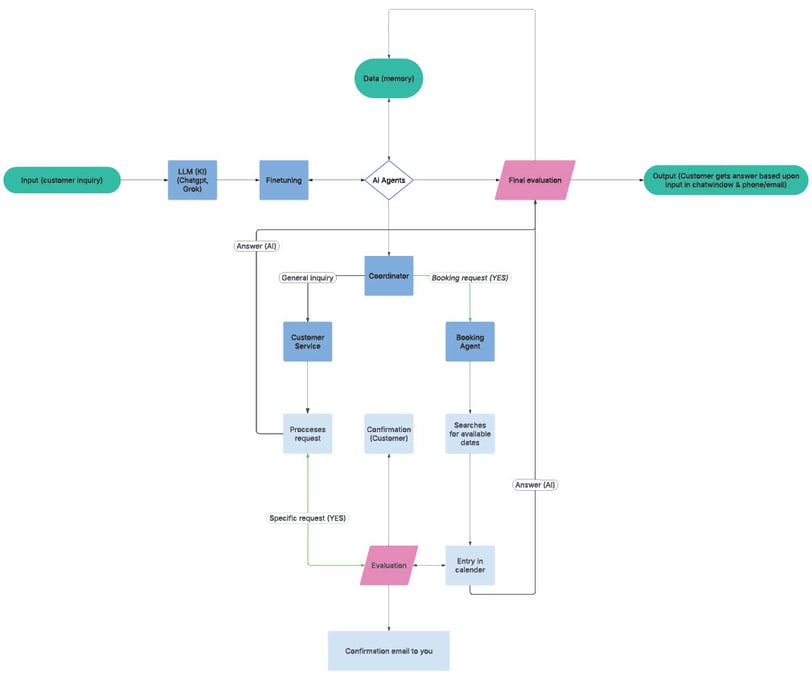AI Agents: How Autonomous Systems Are Shaping Our Future
AI agents are autonomous systems that are fundamentally transforming businesses and society. This blog post explains what AI agents are, in which industries they are already being used, and the opportunities and challenges they bring. Learn how this intelligent technology increases efficiency, reduces costs, and raises ethical questions.
AI
Miro Hikoma
4/2/20252 min read


AI Agents: Their Impact on Business and Society
Artificial Intelligence (AI) is evolving at a rapid pace and influencing numerous industries. One particularly exciting field is AI agents—autonomous systems capable of perceiving their environment, learning from it, and acting independently. This technology has the potential to fundamentally transform many aspects of our lives and work.
What Are AI Agents?
AI agents are autonomous programs that analyze data, make independent decisions, and perform specific tasks more efficiently than traditional software. Unlike conventional AI systems that follow static rules, AI agents can learn, adapt, and independently develop new strategies.
According to a whitepaper from the World Economic Forum (WEF), AI agents represent the next level of automation, offering both opportunities and risks. (Source: WEF)
Areas of Application for AI Agents
The possibilities for AI agents are vast and extend across many industries:
Healthcare: AI agents can analyze patient data, suggest personalized treatment plans, and automate administrative processes. This significantly improves efficiency and patient safety.
Financial Services: They help with fraud detection, automate customer service, and provide data-driven recommendations for portfolio management.
Industry & Manufacturing: In production, AI agents enable near-autonomous systems that optimize production chains in real-time, enhancing competitiveness.
Education: Personalized learning assistants guide students, analyze their progress, and provide tailored materials.
Benefits of AI Agents
Businesses benefit from AI agents in several ways:
Increased Efficiency: Automating repetitive tasks saves time and resources.
Improved Accuracy & Performance of Large Language Models (LLMs): AI agents can enhance the accuracy and performance of LLMs, making them more effective in various applications.
Cost Reduction: Reduced manual work leads to lower operational costs.
24/7 Availability: AI agents work around the clock, improving responsiveness in customer service.
Scalability: Services can be expanded more quickly and efficiently.
Challenges and Risks
Despite the many benefits, there are also challenges:
Ethics & Transparency: Decision-making processes must be transparent and free from bias.
Data Privacy: Handling sensitive data requires strict security measures.
Impact on the Job Market: Automation may lead to job displacement.
The WEF recommends developing strong governance frameworks to minimize these risks and responsibly harness the potential of AI agents. (Source: WEF)
Conclusion
AI agents represent a revolutionary advancement and offer businesses new opportunities to optimize their processes. However, ethical and security-related aspects must be considered to responsibly leverage this technology. Companies should address both the opportunities and challenges to ensure a sustainable and innovative future.
Contact
Support
kontakt@metasolutions.ch
+41 76 841 33 23
+41 79 191 51 40
Metasolutions © 2025. All rights reserved.
Imprint
Headquarters
Baslerstrasse 77
4600 Olten
